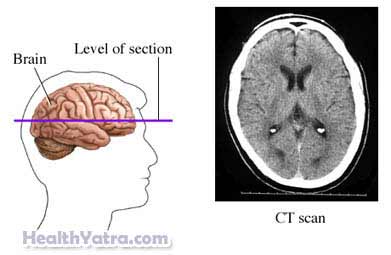परिभाषा
Tardive dyskinesia (TD) is a neurologic syndrome. It results from using neuroleptic drugs—also called antipsychotic drugs. This class of drugs is used to treat psychiatric conditions, like schizophrenia. TD consists of a group of symptoms including:
- Abnormal twisting movements
- Abnormal postures due to sustained muscle contractions
का कारण बनता है
It is unclear exactly why TD develops. Long-term use of neuroleptic drugs can cause changes in the chemistry in the brain that lead to the symptoms. Nerve cells may also become overly sensitive to certain substances, such as neurotransmitters in the brain. Not everyone who takes these drugs develops TD.
जोखिम कारक
Factors that may increase your risk of TD include:
- Use of neuroleptic drugs, especially if the drugs:
- Are taken in high doses and longer than six months
- Are first generation drugs
- Use of metoclopramide and prochlorperazine—These medicines are used to treat gastrointestinal problems, like nausea, vomiting, delayed bowel emptying, andgastroesophageal reflux disease (GERD), especially if taken more than three months.
- Age: 54 or older
- लिंग: महिला
- Possible genetic factor
- Having a disease that may require using neuroleptic drugs, such as:
- Mood disorders or other psychiatric disorders
- Behavior problems that occur with psychiatric or neurologic disorders, such as agitation in Alzheimer’s disease
- Digestive disorders such as:
- Esophageal reflux
- समुद्री बीमारी और उल्टी
- Diabetes —Diabetic gastroparesis may require the medicine metoclopramide.
- Parkinsonism caused by neuroleptic drugs
लक्षण
TD causes repetitive movements. Movements usually occur in the face, mouth, limbs, or trunk. The movements are involuntary and serve no purpose. They may occur occasionally or all of the time. They may or may not be noticeable. Symptoms may begin while on the drug or within weeks of stopping it. They can worsen with:
- तनाव
- Moving other parts of the body
- Taking certain drugs
Symptoms my decrease with:
- विश्राम
- नींद
- Purposely moving the affected body part
लक्षणों में शामिल हो सकते हैं:
- Grimacing
- Sticking out the tongue
- Twisting the tongue
- Chewing
- Sucking
- Smacking lips
- Puckering lips
- Blinking eyes
- Facial tics
- Foot tapping
- Moving fingers as if playing the piano
- Rapidly moving arms, legs, or body
- Writhing movements
- Pelvic thrusts
- Grunting
- Sighing
- Noisy breathing
निदान
The doctor will ask about your symptoms and medical history. A physical exam will be done. Other disorders can लक्षण पैदा करें similar to those of TD. The doctor will rule out other disorders before making a diagnosis. There is no specific test for TD.
परीक्षण में शामिल हो सकते हैं:
- Your bodily fluids may be tested. This can be done with blood tests.
- Pictures may be taken of structures inside your head. This can be done with:
- सीटी स्कैन
- एमआरआई स्कैन

उपचार
To treat TD, your doctor may:
- Stop the neuroleptic medicine
- Lower the dose
- Switch you to a different medicine, such as an atypical antipsychotic
- Recommend vitamin B6 or vitamin E to reduce the risk of worsening symptoms—These vitamins are still being studied.
Symptoms may decrease over time even if you continue to take the neuroleptic drug. Younger people tend to do better.
दवा
Some medicines may help decrease symptoms, such as:
- Melatonin
- Trihexyphenidyl
- Reserpine
- Propranolol
- Clonidine
- Baclofen
- Sedatives, such as:
- Diazepam
- क्लोनाज़ेपम
- Antiseizure drugs, such as:
- Valproic acid
- Levetiracetam
- Antipsychotic drugs that may help with movement disorders, such as sulpiride, oxypertine, tiapride and other medicines, such as L-dopa, which is a type of amino acid.
- Diphenhydramine
सर्जरी
Deep Brain Stimulation (DBS) is being evaluated for the treatment of TD.
रोकथाम
If you need neuroleptic drugs to control a psychiatric disorder, consider these guidelines to help prevent TD:
- Talk with your doctor about:
- Risks and benefits of the medicine
- Whether the dose is right for you and how well the drug is working
- Other medicines you can try that have less risk of TD
- Whether you can take a drug holiday, to take a break from using the medicine
- Even a small symptom of TD that you have—Early treatment works best.
- Do not stop taking your medicine without first talking to your doctor. If you stop the drug right away, it may trigger TD.
- See your doctor every three months.
